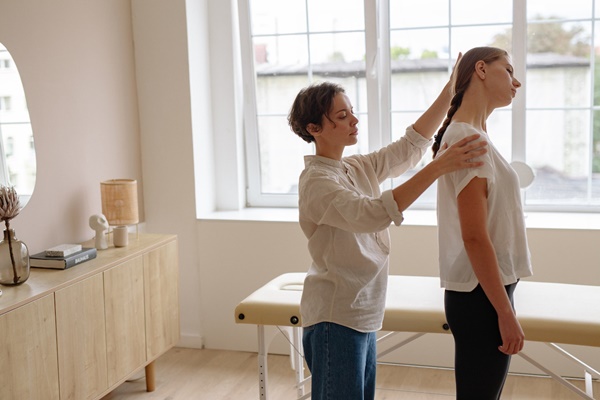As a physical therapist, you may help people heal from illnesses and injuries, manage chronic diseases, and enhance their ability to move and quality of life in general. It is important to make thorough preparations and plans before beginning this adventure. To best prepare for a job as a physical therapist, this article will highlight six crucial topics.
Education and Prerequisites
The initial stage to becoming a physical therapist is earning a bachelor's degree. Although there isn't a set undergraduate major necessary, it is wise to pick a degree plan that includes courses in anatomy, biology, physiological science, fitness science, or a similar subject. Research the prerequisites to ensure you satisfy the academic criteria for the physical therapy schools you are interested in. It is crucial to remember that some programs can also demand prerequisite courses in disciplines like physics, chemistry, or psychology. As a result, be sure you arrange your coursework appropriately and speak with academic advisers to satisfy all essential prerequisites.
Gain Experience Through Volunteering and Shadowing
Look for chances to volunteer or observe in different medical facilities to obtain knowledge about the area of physical therapy and to show your dedication. Contact nearby hospitals, hospitals, or treatment centers to learn about volunteer opportunities or shadowing programs. You will gain significant insight into the work of a physical therapist from this experience, which will aid in choosing your future profession. To obtain a thorough awareness of the various facets of the field, think about getting in touch with physical therapy clinics that focus on disciplines such as orthopedics, athletic medicine, pediatrics, or geriatrics.
Research and Select Accredited Physical Therapy Programs
Look for certified physical therapy courses that fit your professional objectives. Consider elements including program standing, curriculum, clinical rotations, staff qualifications, and location. The Commission on Certification in Physical Therapy Education (CAPTE) certification is required for licensing and professional practice, so be sure the schools you are considering have it. If you are already a student who left practice, you should apply for continuing education for physical therapists. To learn more about the program's strengths, practical opportunities, and results, take the time to research program websites, go to informational sessions, and get in touch with current students or alums.
Prepare for Graduate School Admission
A Doctor of Physical Therapy (DPT) degree is often required for physical therapy programs. Applications for these programs must be good since admission is extremely tough. Consider taking extra scientific classes in physiology, anatomy, and biomechanics to bolster your intellectual foundation and maintain a competitive GPA. Since many schools demand GRE scores for entrance, prepare for it and take the test. Craft a strong personal statement demonstrating your enthusiasm for the industry, relevant experiences, and long-term objectives. Get letters of reference from professors, doctors, or employers that can attest to your abilities, moral character, and future as a physical therapist.
Obtain Relevant Certifications and Licensure
Consider earning certifications to advance your knowledge and abilities while working for your DPT degree. For instance, you can stand out in the employment market if you have credentials in manual therapy methods, sports rehabilitation, or specialist population management. Additionally, as each state has a separate licensing board with distinct standards, educate yourself on the license requirements of the jurisdiction where you intend to practice. To retain your position as a physical therapist, it's crucial to be informed about license requirements, especially those for ongoing education.
Cultivate Strong Communication and Interpersonal Skills
Physical therapists must have strong interpersonal and communication skills. You may improve your communication abilities by participating in public speaking, group conversations, and active listening. To hone your capacity to cooperate and communicate with varied groups, look for chances to work in teams or assume leadership positions. To improve your communication and cooperation abilities, consider participating in research projects, joining student groups, or working for charitable causes. Remember that having good people skills can help you throughout your career in your encounters with patients and fostering positive connections with coworkers and other healthcare professionals.
Conclusion
A thorough and systematic approach to training is necessary to become a physical therapist. You may build a strong foundation for a rewarding career in physical therapy by focusing on your education, accumulating relevant experience, studying and choosing reputable schools, getting ready for graduate school acceptance, earning certifications, and developing good communication skills. Remain committed, keep up with industry changes, and always work to progress personally and professionally. With dedication and tenacity, you may start a rewarding career as a physical therapist, improving the lives of your patients and promoting their general well-being.








No comments
Post a Comment